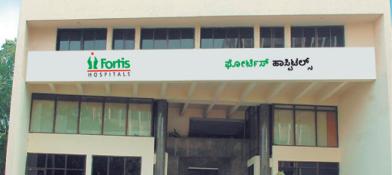Cholesterol test
As per an alarming new study conducted by the Indian government organisation - Indian Council of Medical Research (ICMR) and published in the journal named 'The Lancet Diabetes and Endocrinology,' 213 million individuals live with elevated cholesterol, and 185 million suffer from elevated LDL or bad cholesterol. Getting cholesterol tested and controlling it is crucial to preventing cardiac disease and other serious health issues. Let us dive deep to learn more about cholesterol test!
What is a Cholesterol Test?
A cholesterol test is a form of blood test that estimates the amount of cholesterol and certain fats in blood. Cholesterol - type of lipid - can be defined as a waxy substance present in blood and every cell of body. Some cholesterol is required to keep cells and organs healthy.
The liver makes all the cholesterol the body requires. However, an individual can also get cholesterol from the foods he/she eats, especially meat, eggs, poultry, as well as dairy products. Foods that contain excessive dietary fat can also cause the liver to produce more cholesterol.
There are two major types of cholesterol:
- Low-density lipoprotein (LDL) (or bad cholesterol), and
- High-density lipoprotein (HDL) (or good cholesterol).
Excessive LDL cholesterol in the blood increases the chances of coronary artery disease and other cardiac diseases. Elevated LDL levels can cause the buildup of a sticky substance known as plaque in arteries. Over the passage of time, plaque can narrow arteries or entirely block them. When this happens, parts of the body don't get sufficient blood:
- If the blood flow to the heart is hampered, it can cause a myocardial infarction.
- If the flow of blood to the brain is blocked, it can cause a stroke.
- If the blood flow to the limbs is hampered, it can cause peripheral artery disease.
What is a cholesterol test used for?
A cholesterol test gives an individual and their health care provider important information about risk of developing cardiac disease. If test shows individual has high cholesterol, individual can take steps to lower it. This may decrease risk of developing heart problems in the future. A cholesterol test estimate:
- LDL levels: Also referred as the bad cholesterol, LDL is the major source of blockages in the arteries.
- HDL levels: Regarded the good cholesterol, HDL aids get rid of bad LDL cholesterol.
- Total cholesterol: The combined quantity of LDL cholesterol and HDL cholesterol in blood.
- Levels of Triglycerides: Triglycerides can be defined as a form of fat found in blood. Few studies depict that high triglyceride levels may increase the probability of heart disease, especially in females.
- Levels of VLDL: Very low-density lipoprotein (VLDL) is another form of bad cholesterol. High VLDL levels have been associated to plaque buildup in the arteries. VLDL isn't typically included in routine cholesterol tests because it's hard to estimate. About half of VLDL is triglycerides, so VLDL level can be assessed as a percentage of triglyceride level.
Who should get a cholesterol test?
As recommended by the government organisation - National Heart, Lung, and Blood Institute (NHLBI), an individual's first cholesterol screening should be done between the ages of 9 and 11 and then be repeated at the interval of every five years post that.
The NHLBI advises that cholesterol screenings should be conducted every 1 to 2 years for men belonging to age group 45 to 65 and for women ages 55 to 65. Individuals over 65 should get cholesterol tests once a year.
Need of a cholesterol test
Medical professional may order a cholesterol test as part of a routine exam. Individual may also have a cholesterol test if he/she has a family history of heart ailment or if the chances of heart problems is high because of the following:
- Elevated blood pressure
- Type 2 diabetes
- Smoking
- Too much weight (or obesity)
- Lack of physical activity
- A diet high in saturated fat
What to know before getting a cholesterol test?
Individuals may require fasting (not eating or drinking) for 8 to 12 hours prior to the cholesterol test. Individuals should ask healthcare professionals how to prepare for the test.
What happens during a cholesterol test?
A healthcare professional will utilise a tiny needle to extract a sample of blood from a vein in the arm. Post the needle is inserted, a little quantity of blood will be gathered into a vial. Individuals may feel a slight pain when the needle goes in or out. This generally takes less than five minutes.
Individuals may be able to utilize an at-home kit to check cholesterol levels. An individual's kit will comprise a device to prick an individual's finger to collect a drop of blood for testing. Be sure to follow the kit instructions vigilantly. Also, the individual should inform the healthcare provider if the individual's at-home test indicates that the total cholesterol level is more than 200 mg/dl.
What do the results mean?
Are there any risks to the test?
There is a slight risk of having a blood test. Individuals may experience slight pain or bruising at the spot where the needle was put, but most manifestations go away rapidly.
Ways to lower LDL levels and reduce the risk of high cholesterol levels!
Ingesting a healthy diet: Reducing or avoiding foods high in saturated fat and cholesterol can aid in lessening the cholesterol levels in the blood.
Shedding pounds: Being overweight can increase cholesterol and the risk of cardiac disease.
Staying active: Regular exercise may aid in lowering LDL (bad) levels of cholesterol and raising HDL (good) cholesterol levels. It may also aid in losing weight.
In a nutshell, a cholesterol test is a vital tool in assessing an individual's chances of developing cardiovascular disease. This test offers crucial insights into cardiac health by estimating LDL, HDL, total cholesterol, and triglyceride levels. Maintaining healthy cholesterol levels through lifestyle alterations such as a nutritious diet, regular physical activity, and weight management can significantly reduce cardiac ailment risk. As advised by healthcare professionals, regular screenings ensure early detection and timely interventions, empowering individuals to take charge of their cardiovascular health.
Popular Searches :
Hospitals: Cancer Hospital in Delhi | Best Heart Hospital in Delhi | Hospital in Amritsar | Hospital in Ludhiana | Hospitals in Mohali | Hospital in Faridabad | Hospitals in Gurgaon | Best Hospital in Jaipur | Hospitals in Greater Noida | Hospitals in Noida | Best Kidney Hospital in Kolkata | Best Hospital in Kolkata | Hospitals in Rajajinagar Bangalore | Hospitals in Richmond Road Bangalore | Hospitals in Nagarbhavi Bangalore | Hospital in Kalyan West | Hospitals in Mulund | Best Hospital in India | | Cardiology Hospital in India | Best Cancer Hospital in India | Best Cardiology Hospital in India | Best Oncology Hospital In India | Best Cancer Hospital in Delhi | Best Liver Transplant Hospital in India
Doctors: Dr. Rana Patir | Dr. Rajesh Benny | Dr. Rahul Bhargava | Dr. Jayant Arora | Dr. Anoop Misra | Dr. Manu Tiwari | Dr. Praveer Agarwal | Dr. Arup Ratan Dutta | Dr. Meenakshi Ahuja | Dr. Anoop Jhurani | Dr. Shivaji Basu | Dr. Subhash Jangid | Dr. Atul Mathur | Dr. Gurinder Bedi | Dr. Monika Wadhawan | Dr. Debasis Datta | Dr. Shrinivas Narayan | Dr. Praveen Gupta | Dr. Nitin Jha | Dr. Raghu Nagaraj | Dr. Ashok Seth | Dr. Sandeep Vaishya | Dr. Atul Mishra | Dr. Z S Meharwal | Dr. Ajay Bhalla | Dr. Atul Kumar Mittal | Dr. Arvind Kumar Khurana | Dr. Narayan Hulse | Dr. Samir Parikh | Dr. Amit Javed | Dr. Narayan Banerjee | Dr. Bimlesh Dhar Pandey | Dr. Arghya Chattopadhyay | Dr. G.R. Vijay Kumar | Dr Ashok Gupta | Dr. Gourdas Choudhuri | Dr. Sushrut Singh | Dr. N.C. Krishnamani | Dr. Atampreet Singh | Dr. Vivek Jawali | Dr. Sanjeev Gulati | Dr. Amite Pankaj Aggarwal | Dr. Ajay Kaul | Dr. Sunita Varma | Dr. Manoj Kumar Goel | Dr. R Muralidharan | Dr. Sushmita Roychowdhury | Dr. T.S. MAHANT | Dr. UDIPTA RAY | Dr. Aparna Jaswal | Dr. Ravul Jindal | Dr. Savyasachi Saxena | Dr. Ajay Kumar Kriplani | Dr. Nitesh Rohatgi | Dr. Anupam Jindal
Specialties: Heart Lung Transplant | Orthopedic | Cardiology Interventional | Obstetrics & Gynaecology | Onco Radiation | Neurosurgery | Interventional Cardiology | Gastroenterologist in Jaipur | Neuro Physician | Gynecologist in Kolkata | Best Neurologist in India | Liver Transfer































